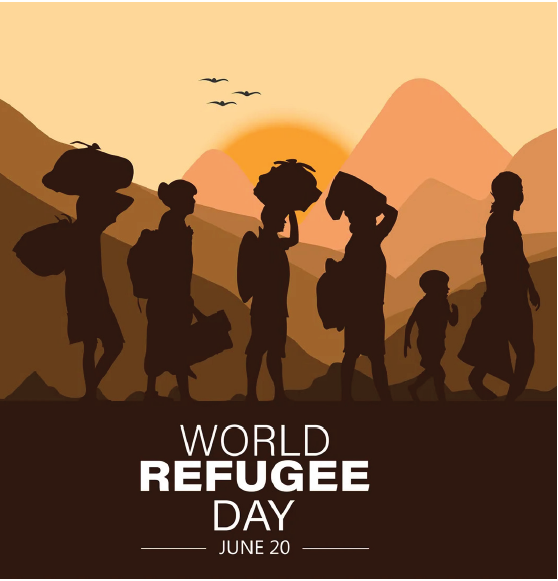World Refugee Day is an international day designated by the United Nations to honour refugees
around the globe. It falls each year on June 20 and celebrates the strength and courage of people who have been forced to flee their home country to escape conflict or persecution. It is an occasion to build empathy and understanding for refugees’ plight and to recognise their resilience in rebuilding their lives.
Pakistan has had a complex history of refugee crises, one rooted in regional conflicts and geopolitical shifts. The first major influx occurred during the 1947 Partition of British India. Millions of Muslims migrated to Pakistan, while Hindus and Sikhs moved to India, leading to significant communal violence and displacement. The refugee crisis that ensued during the 1947 Partition of India and Pakistan remains one of the most harrowing events in modern history. With the partition of British India into two separate nations, Hindu-majority India and Muslim-majority Pakistan, mass migrations of people occurred as communal violence erupted between the two religious communities. Millions of Hindus and Sikhs fled from newly formed Pakistan to India, while an equal number of Muslims migrated in the opposite direction. The journeys were marked by extreme hardship, as people faced violence, displacement, and horrific human suffering.
In 1971, the region faced another refugee crisis during the Bangladesh Liberation War. An estimated ten million Bengalis fled to India to escape the conflict. This influx strained resources and heightened tensions between India and Pakistan, ultimately contributing to Pakistan’s military defeat and the creation of Bangladesh.
Moreover, the Soviet invasion of Afghanistan in 1979 triggered a significant refugee movement. Over three million Afghans fled to Pakistan, primarily to Khyber Pakhtunkhwa and Balochistan provinces. The influx continued through the 1980s and 1990s. The Taliban’s rise to power in the 1990s and the subsequent US-led invasion of Afghanistan in 2001 perpetuated the refugee crisis. By 2001, Pakistan hosted approximately three million Afghan refugees. The situation persisted, with fluctuating numbers due to ongoing instability in Afghanistan. In recent years, renewed conflict in Afghanistan following the 2021 Taliban takeover had again increased refugee flow into the country. The exact numbers are uncertain, but Pakistan continues to host one of the largest Afghan refugee populations in the world.
Despite international aid, the prolonged presence of refugees has impacted Pakistan’s socio-economic fabric, highlighting the need for sustainable solutions and regional cooperation. In October 2023, the caretaker government introduced the ‘Illegal Foreigners’ Repatriation Plan’ – a 30-day deadline for ‘undocumented’ Afghan refugees to leave the country or be subject to deportation which put 1.4 million refugees at risk. Since 2023 September, 527,981 Afghan refugees have returned to Afghanistan – leaving behind their homes, properties, and community in Pakistan. The government states that there are over 800,000 Afghan Citizen Card (ACC) holders, while UNHCR estimates there are 1.3 million The Proof of Registration Card (PoR) holders in Pakistan.
Forced repatriation of Afghan refugees has disrupted the stability and the integration these refugees built over years. They contribute significantly to the local economy and society, and consider Pakistan their home, having developed cultural and social ties. Displacement back to an unstable Afghanistan endangers their safety and nullifies their socio-economic contributions. Such measures violate international human rights principles, which emphasise voluntary repatriation under conditions of safety and dignity. Instead, focusing on integration and providing pathways to citizenship is more humane and beneficial, fostering stability and growth within the Pakistani society.
World Refugee Day serves as a poignant reminder for Pakistan to improve its legislation around refugees and recognise the significant contributions of refugees to Pakistani society. It emphasises the need for compassionate and sustainable policies. The day calls for enhanced assimilation efforts, better living conditions, and protection of refugee rights. Amidst ongoing challenges, it is an opportunity for Pakistan to reaffirm its commitment to international human rights principles, ensuring safety, dignity, and support for refugees.



